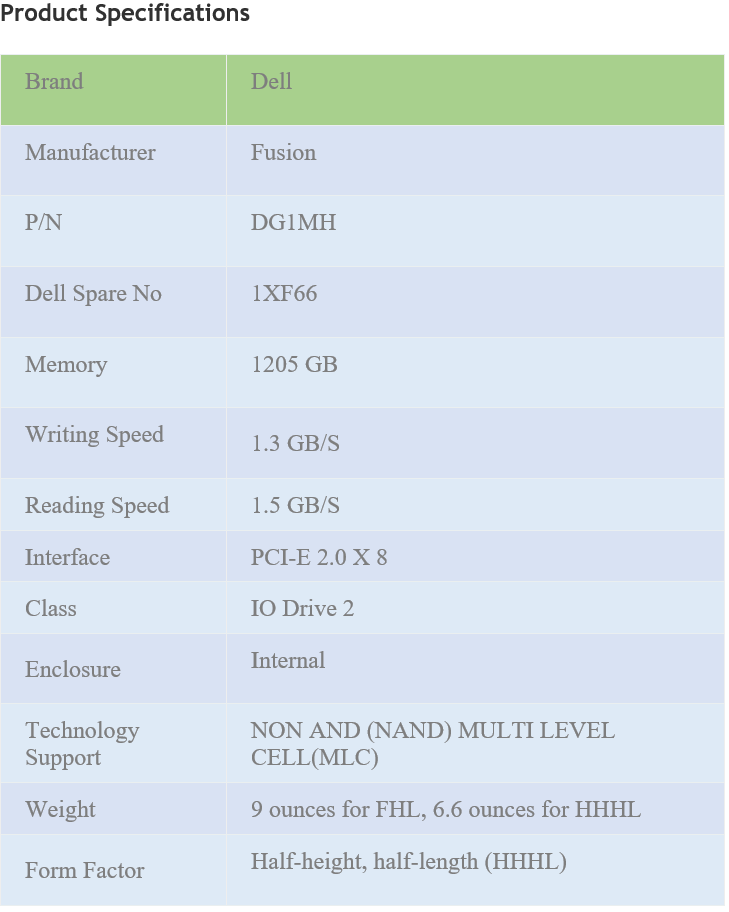Shipping across Australia from $20. Shop Now
Fusion-IO ioDrive II 1205GB 1.2TB MLC SSD Solid State Drive
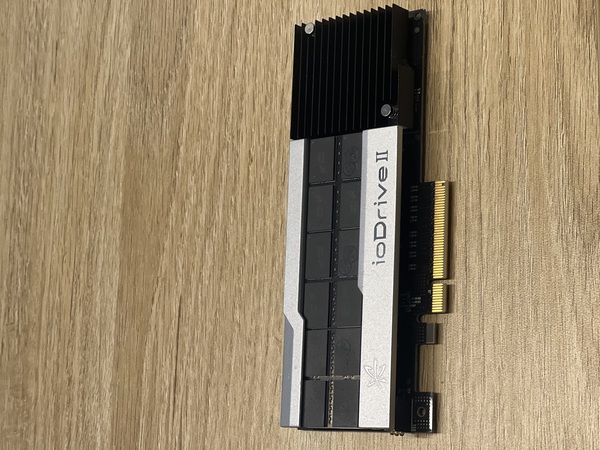
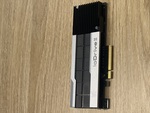
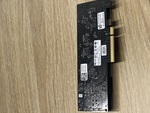
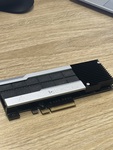
Please Note: This item comes from a working environment, is sold 'as is,' and has not been tested.
The Fusion-io ioDrive2 MLC application accelerator comes in capacities up to 1.2TB in a half-height half-length (HHHL) form factor (or 3TB in FHHL) and is highlighted by exceedingly low read and write access latencies. While we've previously reviewed the ioDrive2 flagship Duo SLC, which is great for the most demanding applications, the ioDrive2 single drive with MLC is designed for more "pedestrian" workloads. Pedestrian in ioMemory language though means applications like databases that can accept read latencies of 68µs, compared to the 47µs latency found in the higher-end SLC ioDrive2. Of course offering the drive with MLC NAND brings with it benefits like reduced cost, and the MLC iteration also comes in higher capacities. The ioDrive2 single MLC comes in at a maximum 1.2TB capacity in HHHL or 3TB in FHHL, while the SLC Duo tops out at 600GB and 1.2TB respectively (though the Duo featured with MLC maxes at 1.2TB HHHL and 2.4TB FHHL capacities).
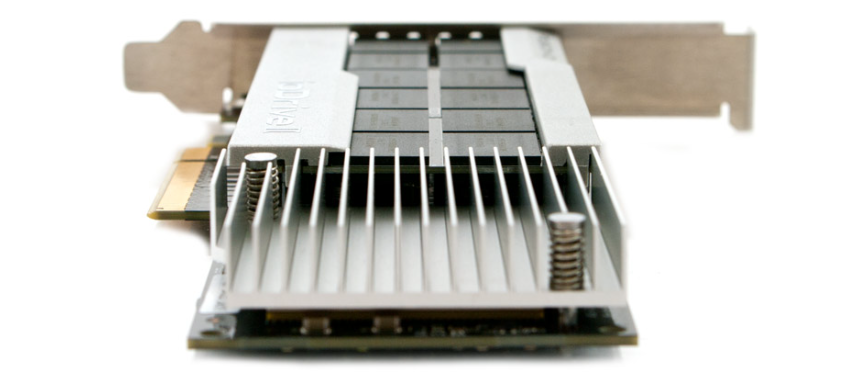
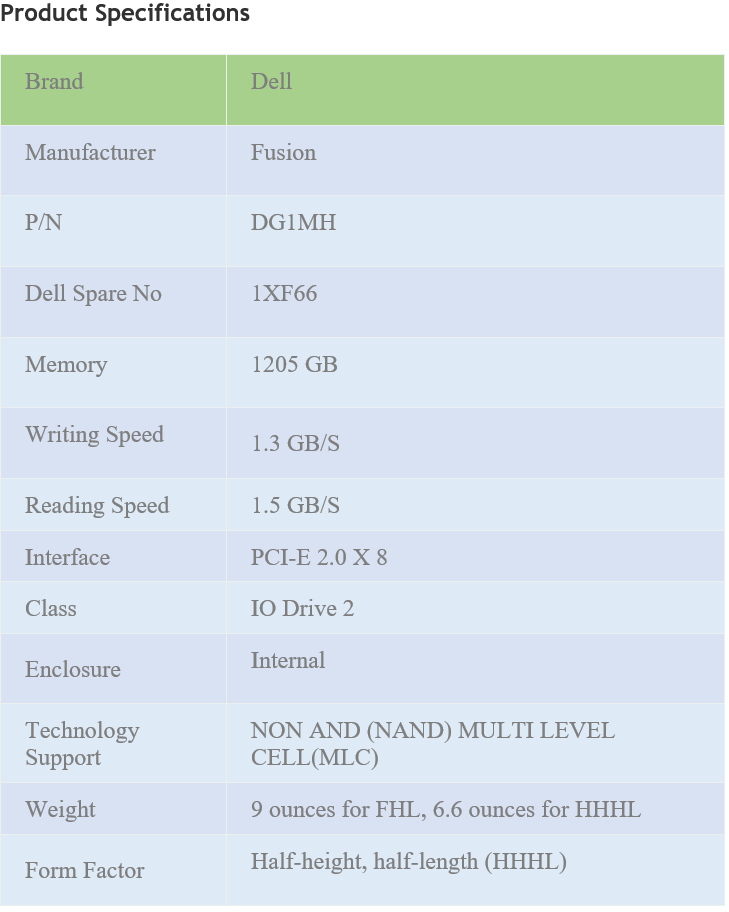
Supported Operating Systems
- Microsoft Windows: 64-bit Windows Server 2012, Windows Server 2012, Windows Server 2008 R2, Windows Server 2008, Windows Server 2003
- Linux : RHEL 5/6; SLES 10/11; OEL 5/6; CentOS 5/6; Debian Squeeze; Fedora 16/17; openSUSE 12; Ubuntu 10/11/12
- UNIX: Solaris 10/11 x 64; OpenSolaris 2009.06 x 64; OSX 10.6/10.7/10.8
- Hypervisors: VMware ESX 4.0/4.1/ESXi 4.1/5.0/5.1, Windows 2008 R@ with Hyper-V, Hyper-V Server 2008 R2
Find More information here:

